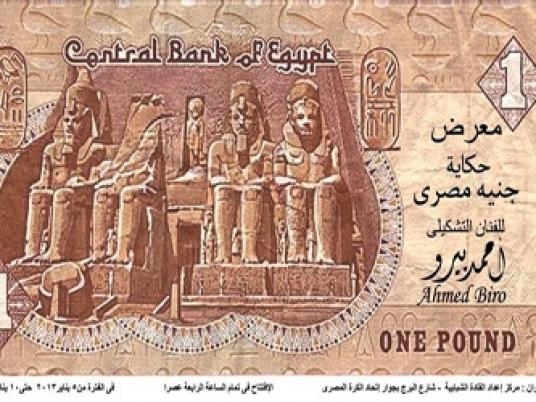
Moody's cut Egypt's credit rating on Thursday, citing unsettled political conditions and public finances, which it said raised the chance of a default within five years to nearly 40 percent.
The economy has been in crisis since the overthrow of former President Hosni Mubarak in 2011, with now-President Mohamed Morsy's cash-strapped government grappling with sliding currency reserves, dwindling tourism, a soaring budget deficit and a wave of often violent street protests.
"The sustained deterioration in Egypt's external payments position and government finances have reached a level at which the country's vulnerability to economic or political shocks has widened and the risk of default has consequently increased," Moody's said in a statement.
It cut the country's credit rating by one notch from B3 to Caa1, which it said meant it now sees nearly a 10 percent chance of Egypt defaulting on its debt over the next year and slightly less than a 40 percent chance of a default within five years.
It was Moody's sixth downgrade of the country since January 2011, at the height of the uprising that toppled Mubarak soon after, and added pressure on Cairo as it seeks to secure an IMF loan to shore up its finances. The new rating carries a negative outlook.
"Egypt's fiscal position is very worrying, the deficit has been widening since the start of the fiscal year … This has been exacerbated by rising subsidy expenditure," said Jason Turvey, assistant economist at Capital Economics in London.
"If the government secures an IMF deal that should provide a fiscal backstop should the situation deteriorate."
Morsy's government said on Tuesday that it hopes to sign a deal on a US$4.8 billion IMF loan by the end of June and receive the first tranche of cash by then.
The Egyptian pound has depreciated by 9 percent against the dollar since late last year, pushing foreign reserves down to dangerously low levels as the government was forced to defend the currency.
The weak currency has also boosted inflation above 8 percent, prompting the central bank on Thursday to raise interest rates by a hefty 50 basis points.
Sukuk issue
Moody's rating on Egypt is lower than other ratings agencies and with a negative outlook, it could be cut further.
Analysts, however, were not too surprised by the downgrade as uncertainty about whether the government will secure an IMF loan — which will require tough austerity measures Cairo is reluctant to introduce for fear of further unrest — has dragged on for months.
Economic turbulence is being heightened by political uncertainty as it is still unclear when a new lower house of parliament will be installed.
"Moody's is reacting to the uncertainty over the IMF loan," said Souheir Asba, emerging markets strategist at Societe Generale in London. "Politically speaking too it's not getting better nor is the external payment position. The Egyptian pound is depreciating and they will have a hard time financing themselves."
In its plan drawn up for the IMF, the government forecast the budget deficit would hit 12.3 percent of annual economic output in the year to June unless it made urgent reforms.
On Tuesday, it said it would start rationing subsidised bread, seen as a risky step to curb its budget deficit by restricting cheap supplies to the poor.
The government hopes to issue its first Islamic bonds after regulations on sukuk sales are published in June, it said on Thursday. That would help it replenish its low foreign currency reserves, which dropped to the critical level of US$13.5 billion in February.
Egypt is rated one notch higher at B-minus with a negative outlook by Standard & Poor's while Fitch Ratings has Egypt two notches higher at B with a negative outlook.
"It's hard to say how much the downgrades really matter because, after all, Egypt is already considered at junk status," said Turvey.




